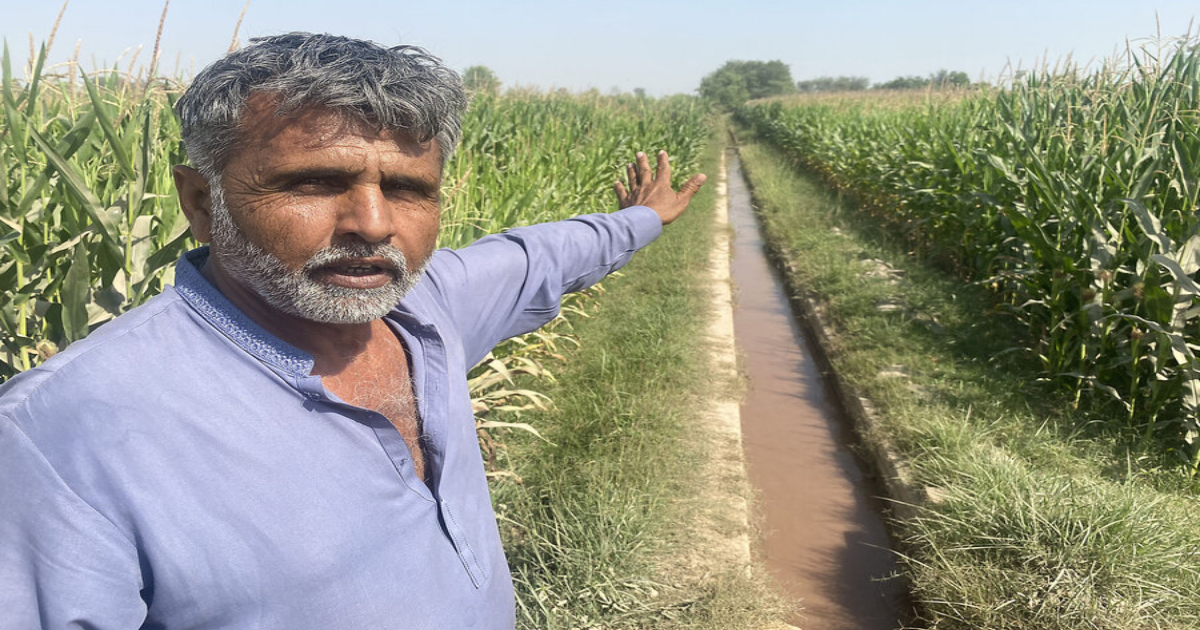This is a critical time of year for farmers in northeastern Pakistan like Abdul Sattar, whose maize crop marches into the distance like a military regiment under a scorching sun.
Mr. Sattar’s maize depends on the narrow canal that irrigates his fields with water from the Chenab River. That water is growing scarcer. “We already have to pick and choose which of our crops we can water,” he says.
Now neighboring India is threatening to make matters worse. Accusing Pakistan of being behind an attack by gunmen in Indian-administered Kashmir last week that killed 26 Indian tourists, New Delhi said it would suspend a decades-old water sharing agreement with its old enemy.
India is threatening to disrupt neighboring Pakistan’s water supplies, in retaliation for the deaths of 26 Indian tourists in disputed Kashmir. Weaponizing water could trigger countless similar conflicts elsewhere in the world.
The 1960 Indus Waters Treaty “will be held in abeyance with immediate effect,” Indian Foreign Secretary Vikram Misri declared last week. Pakistan, which denies involvement in the attack, said any restrictions on its water supply would be considered “an act of war.”
Pakistan depends on the Indus Basin for 80% of its irrigation and 30% of its power generation capacity. The Pakistani National Security Committee announced last week that any attempt to stop or divert the flow of water from the Chenab – or either of the other two rivers whose waters are allocated to Pakistan – would be met “with full force across the complete spectrum of national power.”
On Monday, Pakistan’s defense minister said he believed a military incursion by India was imminent.
The 1960 treaty has survived three wars between the two nuclear-armed neighbors, and has long been celebrated as an example of cross-border cooperation.
A drone view shows the Kotri Barrage on the Indus River in Jamshoro, Pakistan, April 26, 2025. Pakistan depends on the Indus Basin for 80% of its irrigation.
As the upper riparian country – the landmass closer to the source of the river – India could disrupt the flow of water into Pakistan by constructing dams and upstream storage facilities in contravention of the treaty. Presently, the only water projects India is allowed to build are those, such as hydropower stations, that do not reduce the amount of water in the rivers downstream.
“India has already created such projects on the western rivers,” says Pakistani irrigation expert Shafqat Hussain Bhatti. “It can misuse [its power] to create storage over there or to stop the water unnecessarily. It can also delay the release of water when it is urgently needed in Pakistan, like when the wheat crop is maturing.”
Whether such moves would be feasible is uncertain. “I’m not really sure how you keep a river in abeyance,” says Indian geopolitical commentator Praveen Swami. “India doesn’t have the capacity to hold vast amounts of water, and if you look at the hydro-geography of the Kashmir Valley, you can’t really build very big dams without flooding the entire place.”
“India cannot immediately halt the flow of water or significantly divert it, because it lacks the infrastructure at present to do so,” says Maleeha Lodhi, who served as Pakistan’s permanent representative to the United Nations from 2015 to 2019.
But in the longer term, “It has serious implications, which is why Pakistan has said that if India stops or diverts the flow of water it will consider that an act of war,” says Mr. Lodhi.
India could also stop sharing hydrological data with Pakistan, says veteran Indian journalist Karan Thapar. “During the monsoon season that data is critical. If it were denied to Pakistan it would be very worrying for them.”
The politicization of the Indus Waters Treaty marks a new low even by the standards of the historically fractious relationship between the two nuclear powers.
“The treaty … is the only remaining guardrail in the bilateral relationship,” says former Pakistani Foreign Minister Khurram Dastgir Khan. “It is something that has persisted across many wars, many diplomatic tensions, many summoning of troops on the borders,” he says. “Putting it into abeyance shows that [India] is endangering regional peace.”
Using water as a weapon could also create a precedent that might be used one day against India. China controls the upper reaches of the Brahmaputra River, which flows into India. If India were to interfere with Pakistan’s downstream rights, that might embolden China to do the same.
Deepen your worldview
with Monitor Highlights.
Nor is there any appetite in the international community to see India weaponize water, says Seema Ilahi Baloch, a former Pakistani high commissioner in Sri Lanka, because the move could open up countless similar conflicts worldwide.
“This would be the first time that water was used as a weapon,” she says. “Do you think the international community will allow this to be made into a precedent? I don’t think so.”
